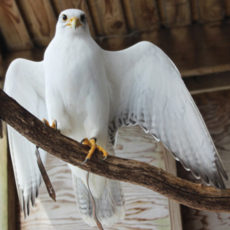Announcements

Nature is a great equalizer. Academic deficiency, a difficult personal history, physical disability, and other perceived life challenges are left behind in an environment where every child is welcome and can experience success. Students learn patience while gardening or while training a calf. Watching leaves change color or a bee pollinate a sunflower inspires awe, curiosity and a deeper reverence for the world around us.
Nature-based programs are a part of classroom education and therapeutic activities for our students. Staff utilize a variety of clinical approaches both directly and indirectly to support and enhance education and treatment for each child. Students interact with nature as they learn about and become responsible for plants and animals while discovering new personal skills, a concept known as Green Care.
Green Chimneys incorporates Green Care in order to help students grow physically, emotionally and academically. The teamwork practiced in animal care, tending a garden, and outdoor exploration facilitates interactions with peers in other situations, and the children learn to apply the lessons of this setting to help them build the skills needed for everyday life.
Nature-based programs integrate skills such as reading, writing, mathematical skills, social studies and history into “real life” non-academic situations. Reading a book in class may seem too hard, but reading the directions on a sheep feed bag seems important and manageable.
Nature- and animal-based activities help teach children how to master academics such as math, writing, and reading. Learning how to measure animal feed, distinguish names of plants on a sign, or count the chickens in the coop can motivate children to attempt the process of learning.
Children learn to adapt their attitude to the demands of school and effectively and successfully function in an academic setting. Green Care is particularly effective for students who face challenges cooperating with school peers and following directions from staff.
Students apply academic concepts learned in the classroom to work with animals and make sense of their environment. Students measure garden beds, experiment with the effect of light on plant growth, and participate in animal care.
Students hone fine motor coordination as they carefully spread seeds across a flat of soil, hike through the Model Forest, and handle and groom animals. Green Care also strengthens gross motor skills and provides a productive release for energetic students who have trouble sitting still.
Nature-based activities stimulate the senses, provide a quiet refuge for contemplation and internal renewal, and enhance feelings of self-worth.

Crowned the best for falconry in medieval times, gyrfalcons were once reserved for kings. As the largest falcon in the world, with exquisite plumage ranging from bright white to deep charcoal, gyrs are revered for their powerful skill of flight. Their long wings make hunting waterfowl from 3,000-feet-high a feasible and fantastical feat. This falcon was flown in the sport of falconry for several years.